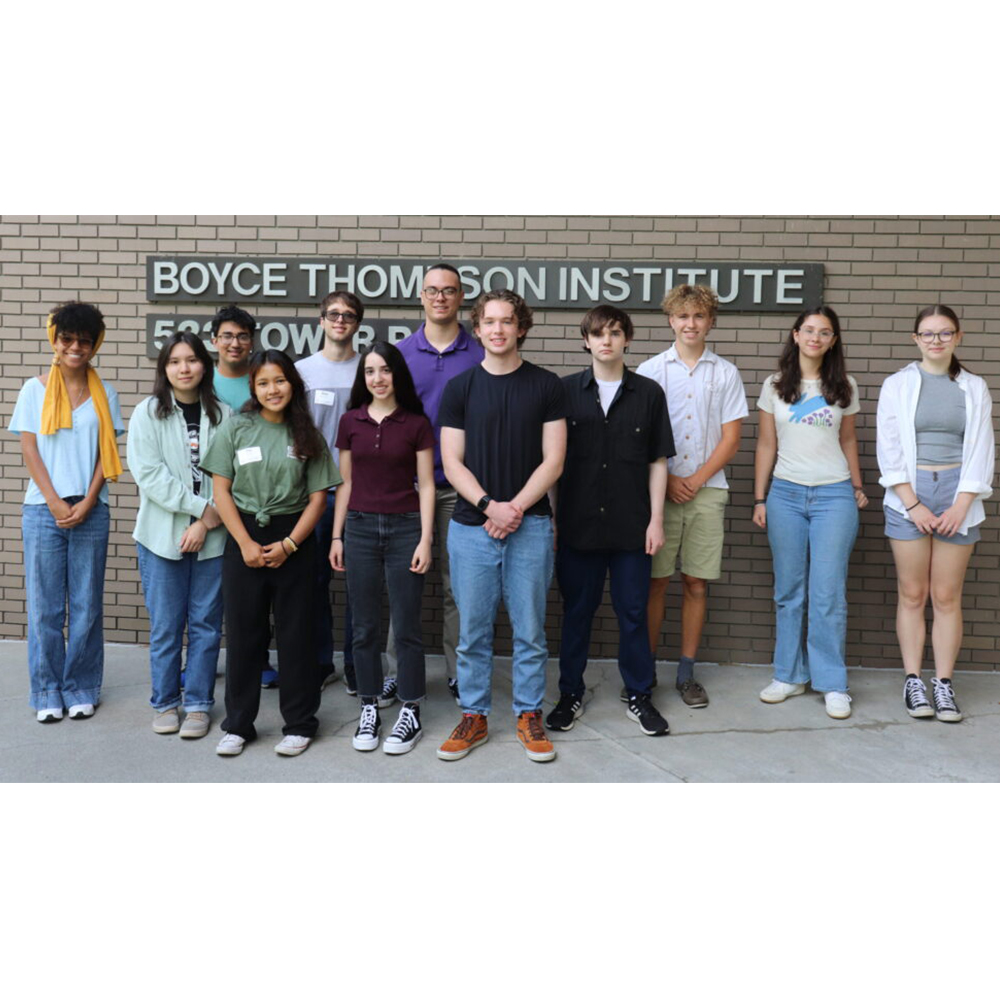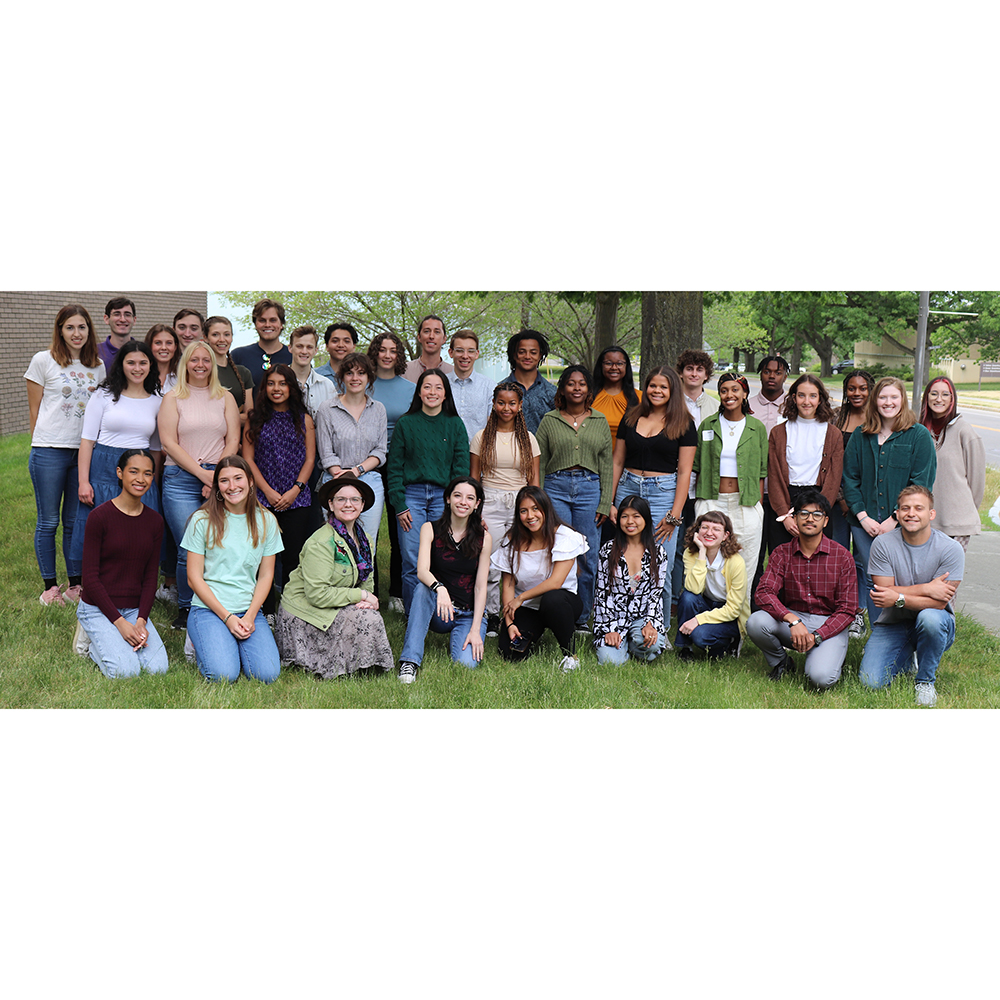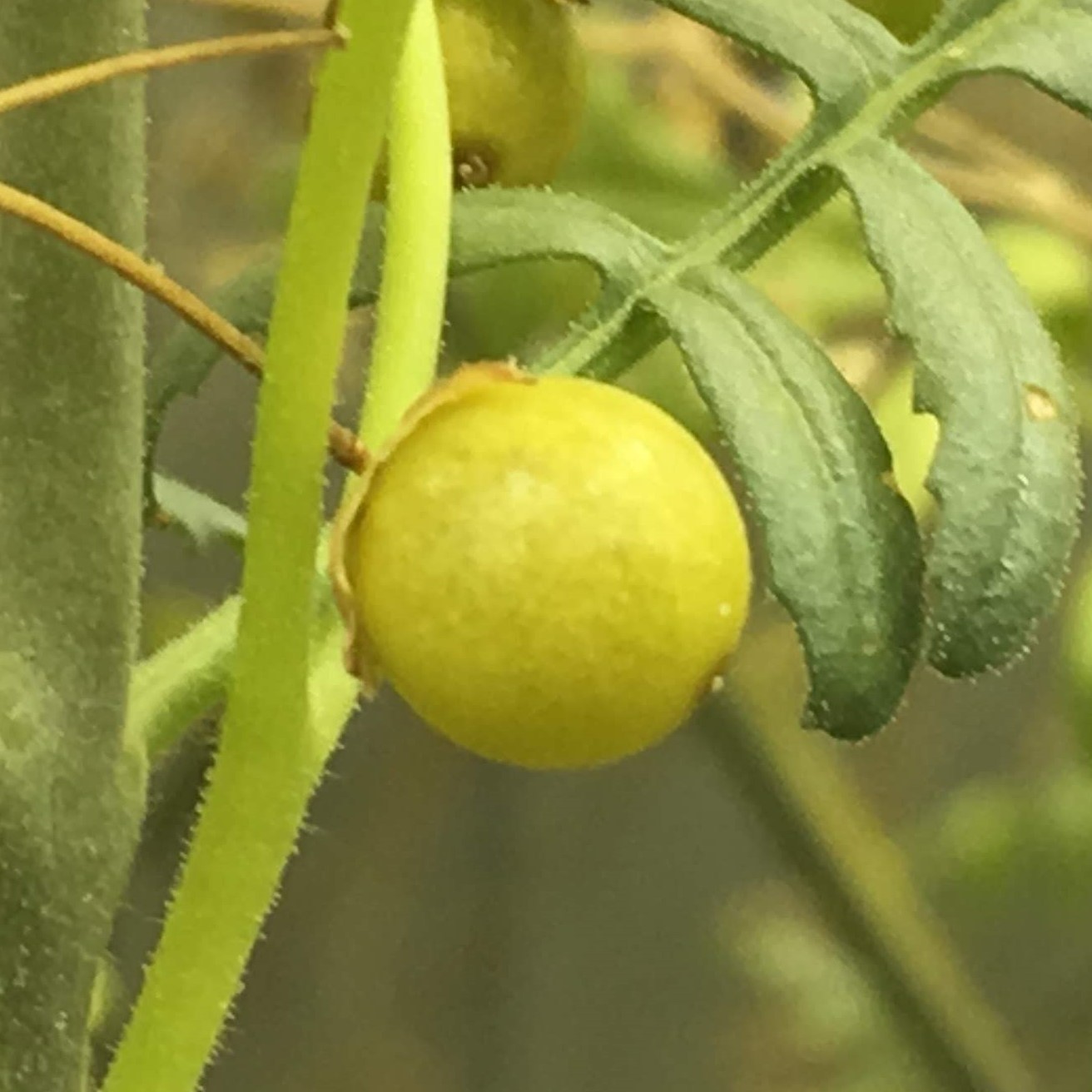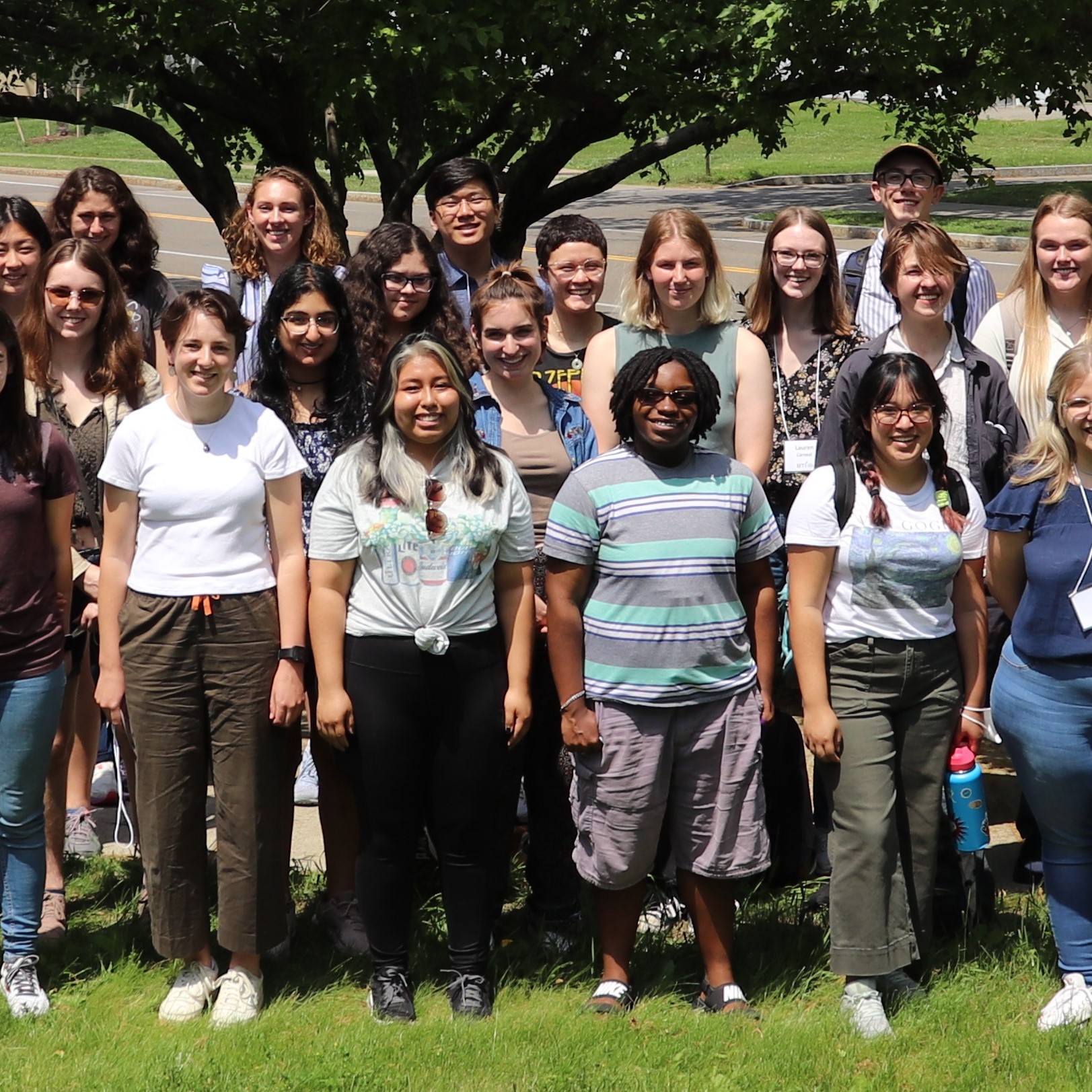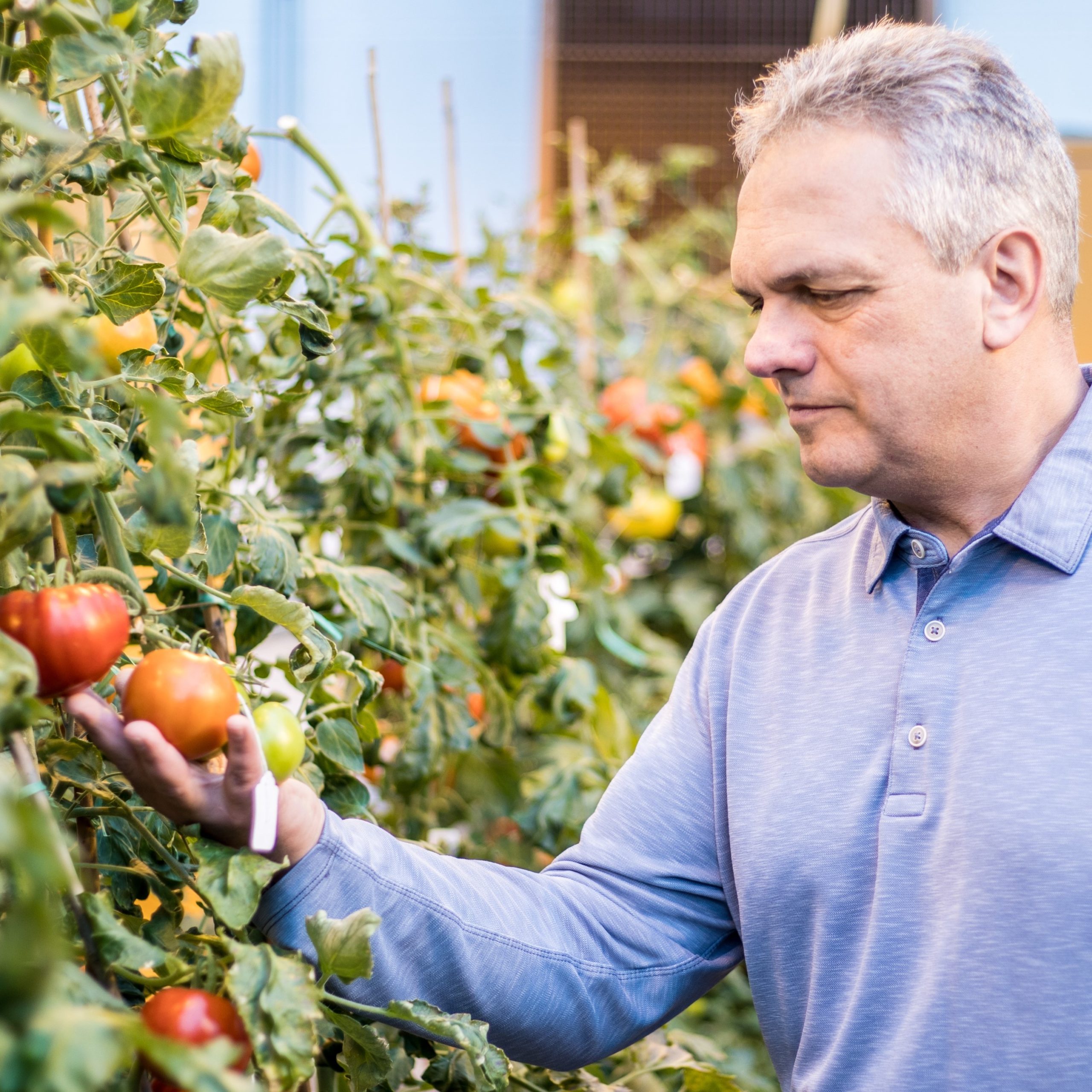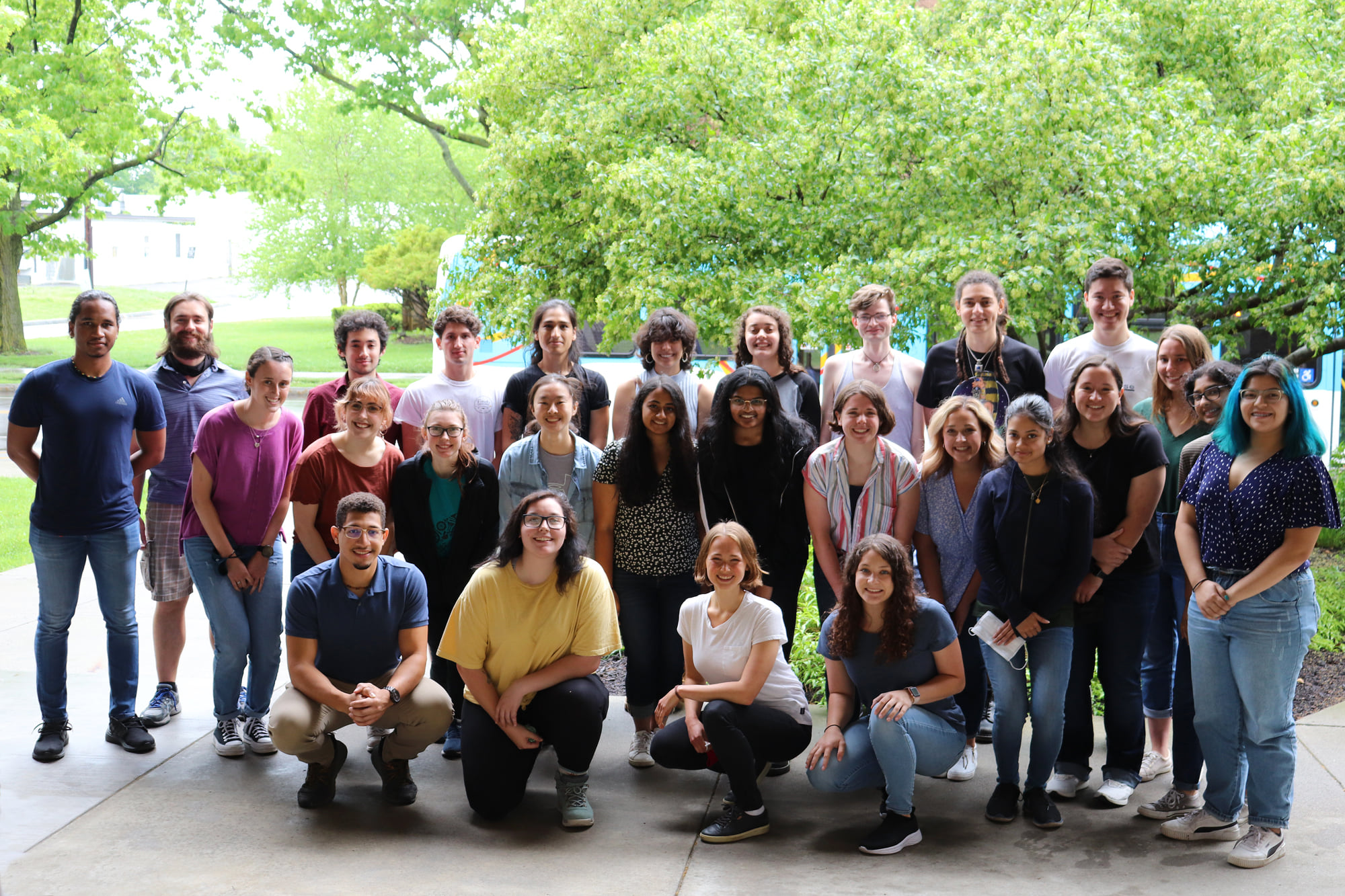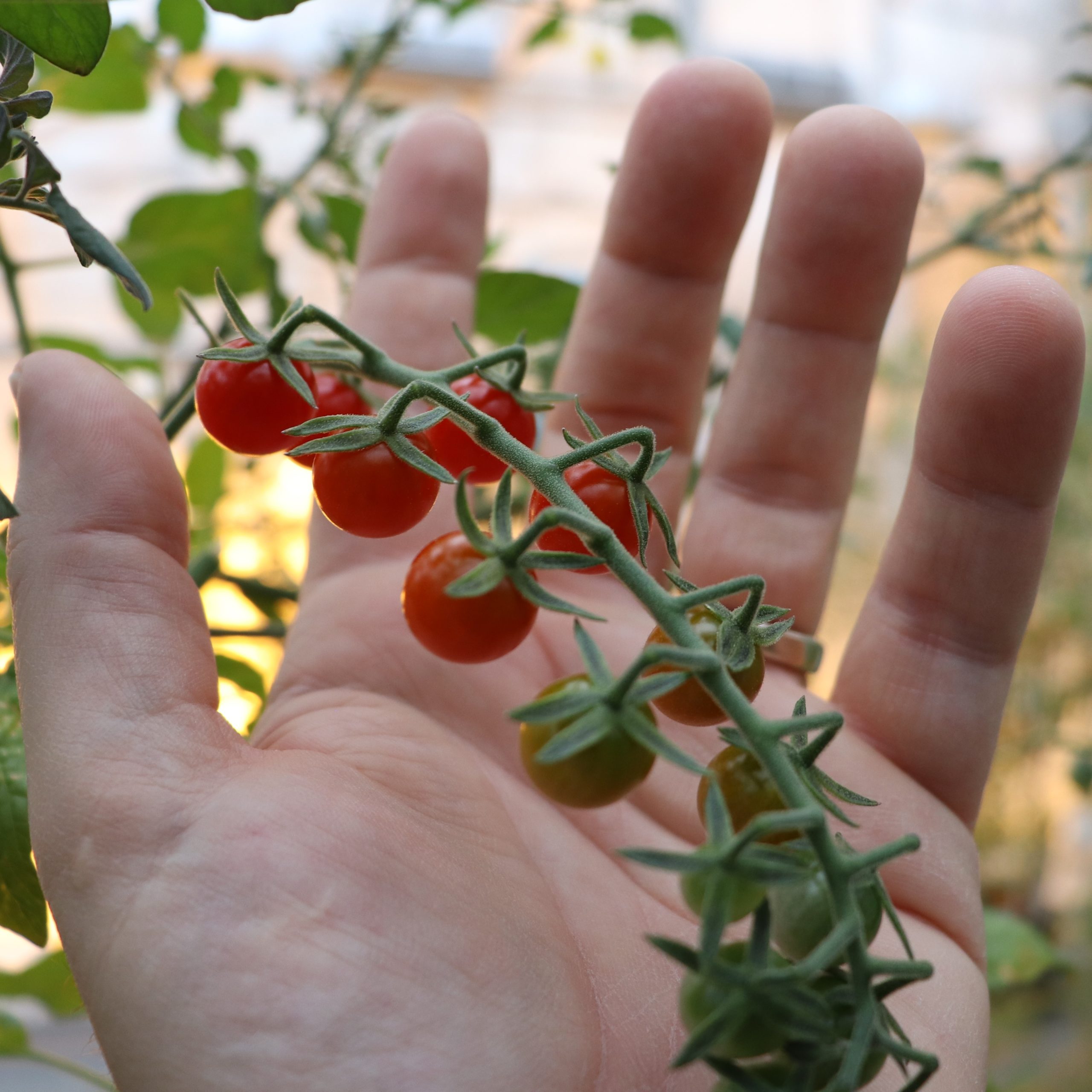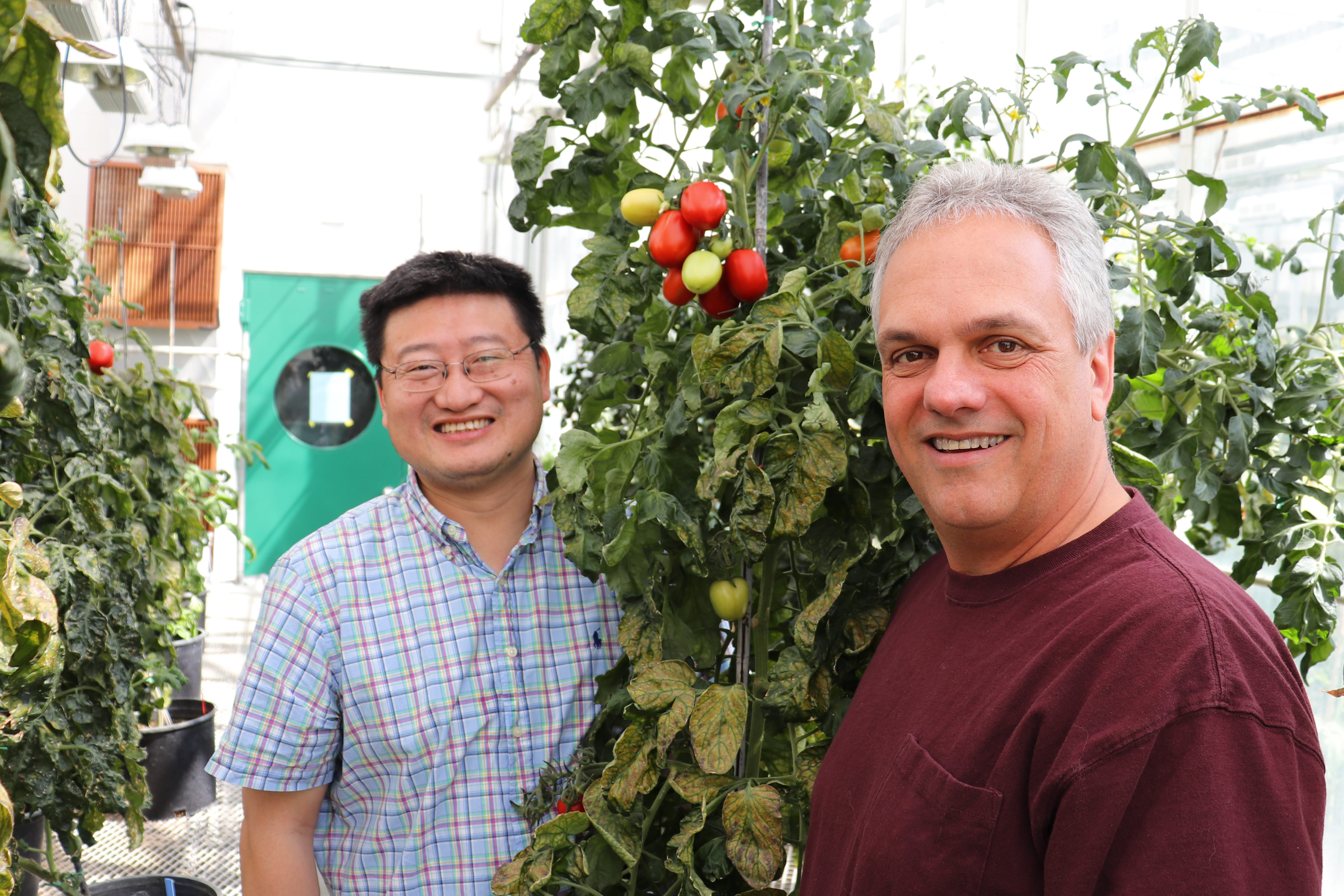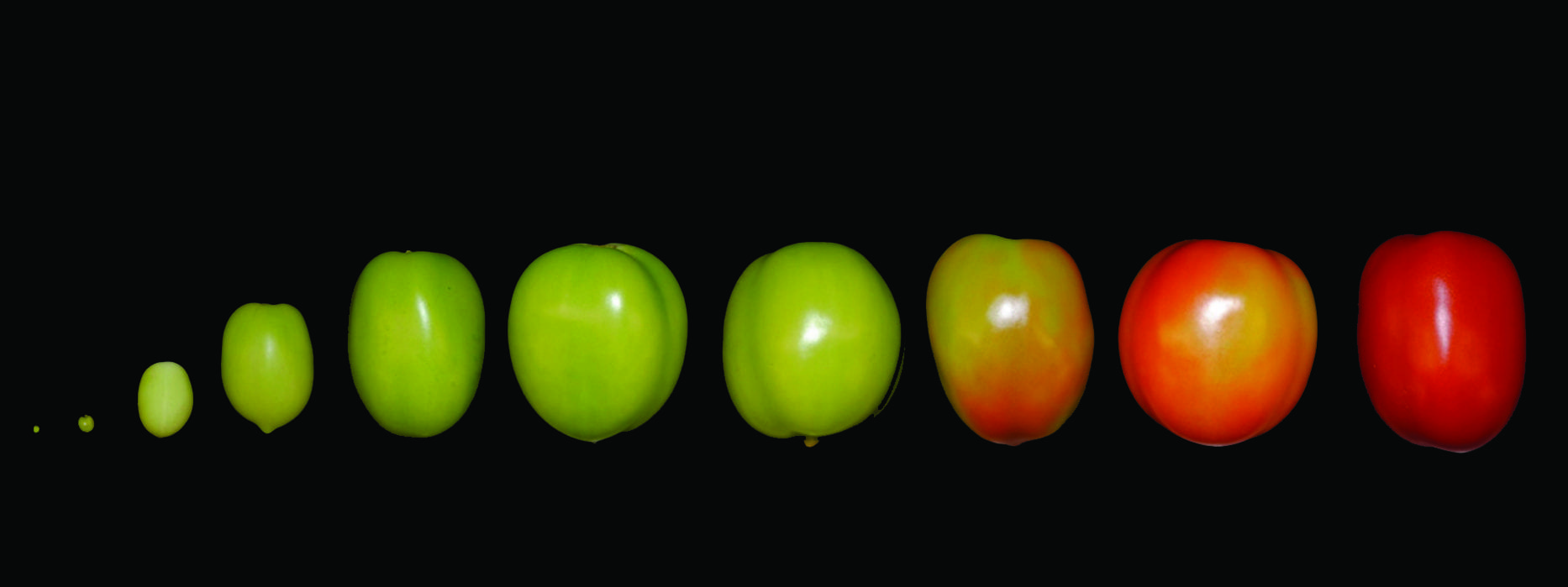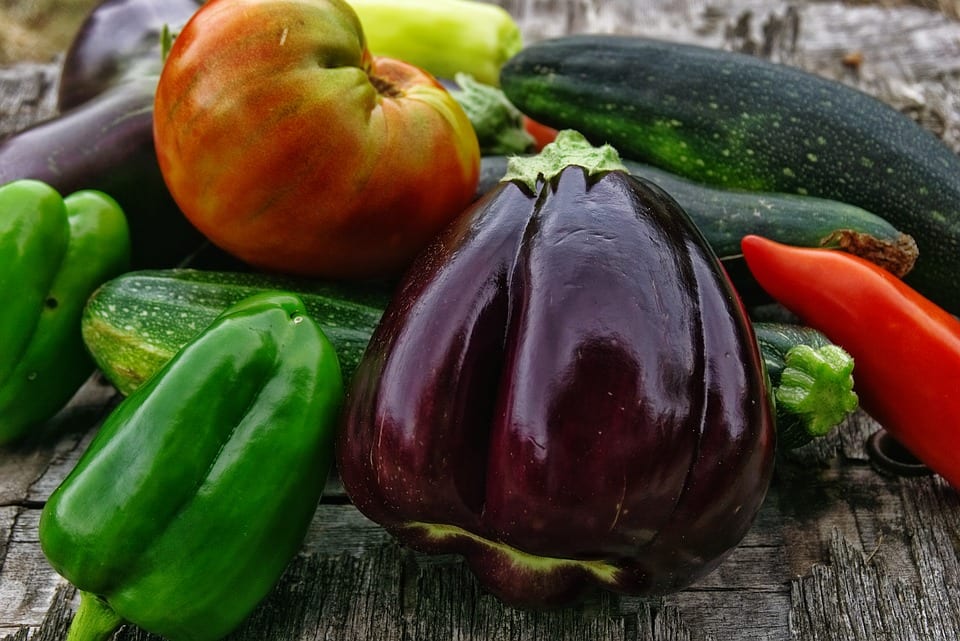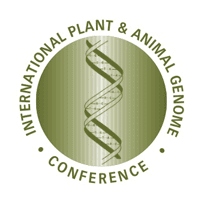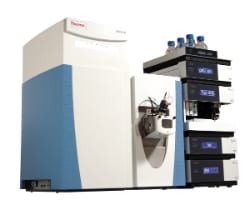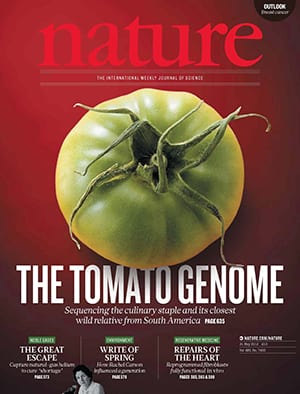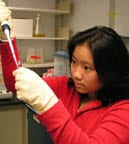
USDA affiliation: Plant Molecular Biologist, USDA-ARS Robert W. Holley Center james.giovannoni@ars.usda.gov
The focus of research in the Giovannoni laboratory is molecular and genetic analysis of fruit ripening and related signal transduction systems with emphasis on the relationship of fruit ripening to nutritional quality. We are also involved in development of tools for genomics of the Solanaceae including participation in the International Tomato Sequencing Project. We employ several experimental systems but the majority of our work involves the use of tomato. The broad objectives of the lab include deciphering the underlying molecular basis of components of ripening regulation conserved through evolution and how these regulatory networks coordinate ripening events including those related to quality and nutritional content.
Experimental approaches include: 1) positional cloning of loci known via mutation to harbor genes necessary for normal fruit development and ripening, and 2) isolation of candidate ripening regulatory genes based on expression pattern or relationship to ripening-related signal transduction systems (e.g. ethylene, light), and functional analysis in transgenic plants.
-
Wild tomato genome will benefit domesticated cousins
Wild relatives of crops are becoming increasingly valuable to plant researchers and breeders. During the process of domestication, crops tend to lose many genes, but wild relatives often retain genes […] Read more » -
BTI Welcomes Summer Student Interns
On May 31, Boyce Thompson Institute welcomed 41 of the country’s brightest undergraduate students from universities around the country to experience the life of a researcher for 10 weeks. Ten […] Read more » -
Newly discovered gene could help improve tomato flavor and shelf-life
Buying tomatoes and other fruits in the grocery store is always a gamble because, however good they look, they are often firm but lack flavor. A group of plant scientists […] Read more »
-
Tomato’s Wild Ancestor Is a Genomic Reservoir for Plant Breeders
Thousands of years ago, people in the region now known as South America began domesticating Solanum pimpinellifolium, a weedy plant with small, intensely flavored fruit. Over time, the plant evolved […] Read more » -
BTI Scientists Create New Genomic Resource for Improving Tomatoes
Tomato breeders have traditionally emphasized traits that improve production, like larger fruits and more fruits per plant. As a result, some traits that improved other important qualities, such as flavor […] Read more » -
Jim Giovannoni appointed Director of USDA-ARS Robert W. Holley Center
Boyce Thompson Institute (BTI) professor Jim Giovannoni has been appointed as the Director of the USDA-ARS Robert W. Holley Center for Agriculture and Health (RHCAH), effective April 15, 2018. Read more » -
New ‘Tomato Expression Atlas’ dives deep into the fruit’s flesh
Researchers at BTI, Cornell and USDA published a spatiotemporal map of gene expression across all tissues and developmental stages of the tomato fruit – the genetic information underlying how a fruit changes from inside to out as it ripens. Their data is available in the new Tomato Expression Atlas (TEA). Read more » -
SolGenomics Meeting Has Newest Advances in Nightshades
Many BTI researchers will present their latest research at the 13th annual SolGenomics Conference, Sept. 12-16 in Davis, California. Read more » -
BTI Researcher Elected to National Academy of Sciences
Jim Giovannoni, BTI professor, USDA-ARS research molecular biologist and Cornell University adjunct professor, is recognized by the National Academy of Sciences for his significant contributions to plant science. Read more » -
BTI Faculty Listed in World’s “Most Influential Scientific Minds”
Giovannoni and Kochian both ranked in the top 1 percent of researchers publishing in plant and animal science. Read more » -
BTI Scientists Flock to Annual Plant and Animal Genome Conference
BTI researchers will present current research on the Sol Genomics Network, using CRISPR to edit genomes, the whitefly genome and others. Read more » -
Plant Experts Discuss New Seeds and Old Seed Catalogs
Professor James Giovannoni, "There’s a great deal of diversity that’s still available from these varieties that potentially have a lot of useful traits, including tolerance to stresses and important fruit traits.” Read more » -
New equipment opens up ‘mass’ive possibilities
The Boyce Thompson Institute starts off 2015 with a generous gift from the Triad Foundation and researchers are about to open their most exciting present: a high-resolution mass spectrometer. The […] Read more » -
Genomics Study of 360 Tomato Varieties Traces History, Points to Possible Improvements
This study pinpoints regions of the tomato genome where extra DNA has hitchhiked along with desirable DNA; regions breeders can now target for crop improvement. Read more » -
BTI Tomato and Fruit Biology Group Awarded USDA Secretary of Agriculture Honor
BTI researchers led team that pioneered international tomato gene sequencing and genetic basis of fruit ripening. Congrats to Vrebalov, Van Eck, Mueller, Giovannoni, Fei. Read more » -
Wild Tomato Sequenced
Fei and Giovannoni Labs contribute to sequencing of wild tomato species Solanum pennellii. Read more » -
Scientists Find Clues into More Disease-Resistant Watermelons, Genome Decoded
Are juicier, sweeter, more disease-resistant watermelons on the way? Read more » -
Tomato Genome Becomes Fully Sequenced – Paving the Way for Healthier Plants
For the first time, the genome of the tomato, Solanum lycopersicum, has been decoded. Read more » -
Dr. Jim Giovannoni Receives Agricultural Research Service Award
Jim Giovannoni was one of four ASPB members to be honored by awards from USDA’s Agricultural Research Service (ARS). Read more »
For more information about the Giovannoni lab, please visit the Plant Biology website. Additionally, the Giovannoni lab, in conjunction with other labs on campus has developed a resource for tomato genomics, the Tomato EST Database. Additional resources and information resulting from tomato genomics activities on the Cornell campus can be found at the Solanaceae Genomics Network site.
Internship Program | Projects & Faculty | Apply for an Internship
















